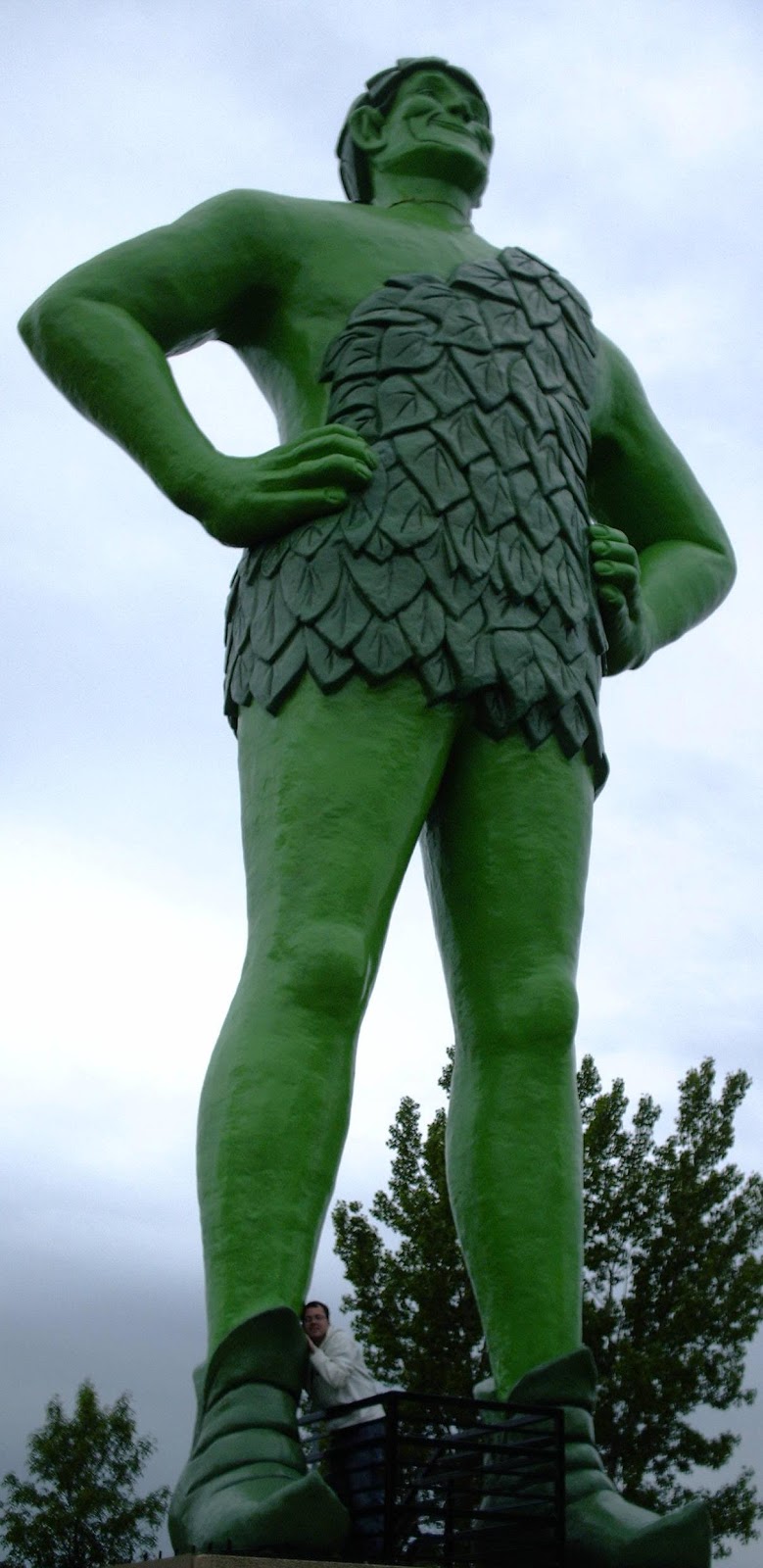The Jolly Green Giant has become an iconic figure in American culture, symbolizing freshness, health, and wholesome nutrition. This beloved character has graced our television screens and grocery store aisles for decades, captivating audiences with his friendly demeanor and integrity. But beyond his cheerful exterior lies a fascinating story of marketing genius, brand evolution, and the importance of vegetables in a balanced diet.
The origins of the Jolly Green Giant date back to the early 1920s when a small Minnesota-based company sought to create a mascot that would resonate with consumers. Little did they know that their creation would not only become a household name but also a cultural phenomenon. As we explore the journey of this towering green giant, we will uncover the secrets behind his success and how he has adapted to changing times while maintaining his cheerful charm.
In this article, we will delve into the biography of the Jolly Green Giant, explore his evolution as a brand ambassador for vegetables, and examine the impact he has had on the food industry. Join us as we uncover the story of this delightful giant who continues to inspire and encourage healthy eating habits across the globe.
What is the History of the Jolly Green Giant?
The Jolly Green Giant made his first appearance in 1925, initially as a marketing tool for the Minnesota Valley Canning Company. The company sought to promote their line of canned peas, and the character was created to embody the freshness and quality of the product. Over the years, the Jolly Green Giant's image evolved, and he became a symbol of the entire frozen and canned vegetable line.
How Did the Jolly Green Giant Become a Cultural Icon?
Through clever marketing campaigns and engaging advertisements, the Jolly Green Giant became a household name. His signature catchphrase, "Ho, ho, ho! Green Giant!" resonated with consumers and established a sense of warmth and familiarity. The character's friendly appearance and playful personality made him a favorite among children and adults alike, resulting in widespread brand recognition.
What Role Did Advertising Play in the Jolly Green Giant's Success?
Advertising played a crucial role in the Jolly Green Giant's rise to fame. The character was featured in television commercials, print ads, and even animated films. The use of vibrant colors, catchy jingles, and relatable scenarios helped solidify the Jolly Green Giant's status as a symbol of healthy eating. Over the years, the character has undergone several redesigns to stay relevant, yet his essence has remained unchanged.
Biography of the Jolly Green Giant
The Jolly Green Giant is not a real person, but rather a fictional character created for marketing purposes. However, if we were to create a biography-like overview of this iconic figure, it would look something like this:
| Attribute | Details |
|---|---|
| Name | Jolly Green Giant |
| Year Created | 1925 |
| Created By | Minnesota Valley Canning Company |
| Catchphrase | "Ho, ho, ho! Green Giant!" |
| Character Traits | Friendly, cheerful, supportive of healthy eating |
| Current Owner | General Mills |
How Has the Jolly Green Giant Adapted to Modern Times?
As consumer preferences and dietary trends have evolved, so too has the Jolly Green Giant. The character has embraced a more health-conscious image, promoting the benefits of vegetables in various forms, including frozen, canned, and fresh. The brand has expanded its product range to include organic options and has focused on sustainability, reflecting the growing awareness of healthy eating and environmental issues.
What Impact Has the Jolly Green Giant Made on the Food Industry?
The Jolly Green Giant has significantly influenced the food industry by encouraging consumers to incorporate more vegetables into their diets. Through engaging advertisements and community outreach programs, the character has helped to break down barriers related to vegetable consumption, particularly among children. His presence in supermarkets and schools has made vegetables more appealing and accessible, promoting healthier eating habits.
Why is the Jolly Green Giant Still Relevant Today?
Despite being a product of the early 20th century, the Jolly Green Giant remains relevant today due to his ability to adapt and evolve with changing consumer needs. The character embodies the values of health, nutrition, and sustainability, resonating with contemporary audiences who are increasingly conscious of their dietary choices. The Jolly Green Giant continues to inspire families to embrace vegetables, making him an enduring symbol of healthy living.
What Can We Learn from the Jolly Green Giant?
The story of the Jolly Green Giant offers valuable lessons in branding, marketing, and the power of positive messaging. His cheerful demeanor and commitment to promoting a healthy lifestyle serve as a reminder of the importance of nutrition in our daily lives. As we navigate a world filled with fast food and unhealthy options, the Jolly Green Giant encourages us to make better choices for our health and well-being.
How Can We Incorporate the Jolly Green Giant into Our Lives?
- Embrace vegetables as a core part of your diet.
- Encourage children to explore new vegetables through fun recipes.
- Participate in community gardening or local food initiatives.
- Spread awareness about the benefits of eating a plant-based diet.
In conclusion, the Jolly Green Giant has transcended his role as a mere mascot, becoming a beloved cultural icon that advocates for healthy eating. His journey from a marketing tool to a symbol of nutrition reflects the power of branding and the importance of adapting to societal changes. As we continue to navigate the complexities of modern diets, the Jolly Green Giant stands tall, reminding us of the joys and benefits of incorporating vegetables into our meals.
Discover The Charm Of Hudson Hills Golf
Discovering The Wonders Of Buena Vista Audubon
Unveiling The Alabama Mascot Name: A Symbol Of Pride And Tradition


